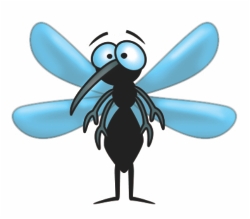| Home - Back Issues - The Team - Contact Us |
 |
| Volume 10 |Issue 39 | October 14, 2011 | |
|
|
Perceptions Mosquito Quips Syed Badrul Haque
The mosquitoes no doubt wreak havoc on human lives, but it also fosters anecdotes that are fascinating. In the early fifties the mosquitoes invaded the city-dwellers with vengeance and made their life miserable. Driven to desperation, a reader of “Agattya,” a popular Bengali periodical of the day, wrote a letter to its editor asking a way out of this nuisance. The editor replied quoting a line from a hit song of a Bollywood movie, Barsat, “Hamse na pucho, pucho Baharse,” which obviously directed the letter writer to refer his question to Mr. Habibullah Bahar, who was then the provincial health minister under the Pakistani regime. Quip aside, novelty of the reply was no less striking. Mosquito-oil in those days used to be sprayed in derelict spots in the city almost regularly by the employees of the Dhaka Municipality. In their rounds, the DM employees used to spray mosquito-oil in the surrounding areas of the office of the daily Azad – the premier Bangla newspaper of the time – in the vicinity of the Dhakeswari Mandir in old Dhaka. The DM employees were given complementary copies of the paper whenever they came to the Azad premises in their rounds. In time, mosquitoes decreased considerably in the area, except for the Azad premises. When asked the reasons, the DM employees were thoroughly embarrassed; finally, when forced, they divulged their long-guarded secret. Bluntly they said they deliberately had left some unkempt spots unattended to allow for mosquitoes to breed. They feared that if all the mosquitoes were gone, they stood to lose their jobs and their families would starve. To them, it was simply a question of survival. The gamble paid off spectacularly. The Azad management, though stunned by their reply, quietly yielded to their ploy. An unspoken truce was enforced and the matter was left at that point, not to be raised again. The anecdote offers a message and whisper of a fine short story: in a bizarre twist, the killer-mosquito emerges as the 'saviour' of its targeted victims, the human beings, and LIFE, a common coin, is celebrated with a win-win perception well beyond the drama.
Copyright
(R) thedailystar.net 2011 |
 M
M